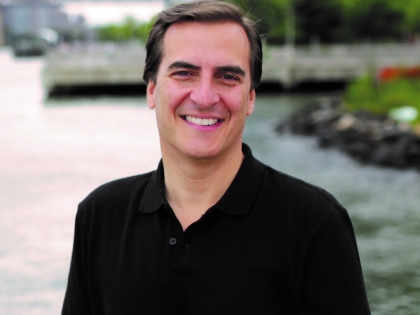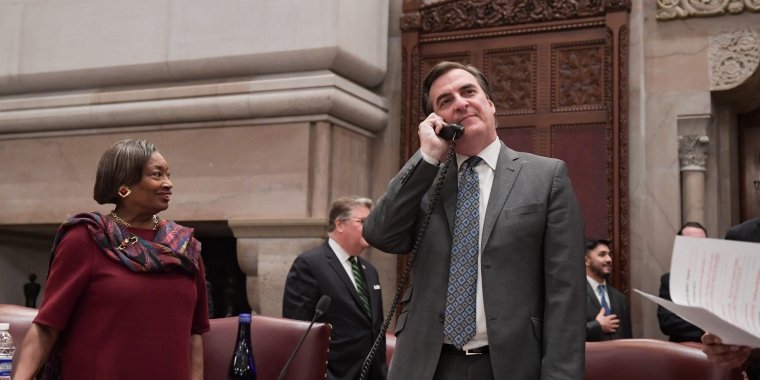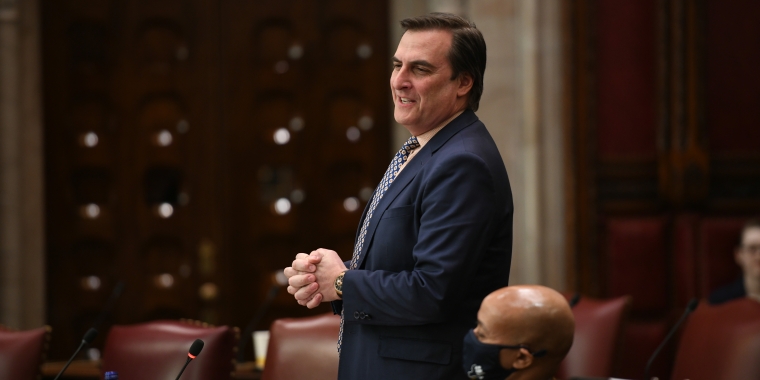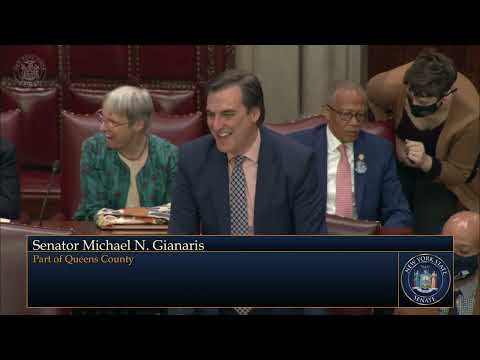
New York Law Journal: Deputy NY Senate Leader Renews Call for Progressive Chief Judge, Hits Back at Critics

As the Nov. 25 deadline approaches for a judicial nominating commission to submit seven candidates for chief judge of New York, a blunt-talking voice for state Senate Democrats recently suggested that the panel “kind of already know what they’re going to do, and where they’re going to end up.”
Senate deputy majority leader Michael Gianaris, D-Queens, made that assertion as part of a recent panel discussion during which he doubled down on his call for the commission to nominate progressive-minded attorneys with backgrounds in civil rights, immigration, and public defense as the next chief judge of the state court system.
With all six of the current Court of Appeals judges either former prosecutors or corporate lawyers, Gianaris said he’s hoping the pick won’t be aligned with Acting Chief Judge Anthony Cannataro and Judges Michael Garcia and Madeline Singas, who have aligned as a moderate-conservative bloc on the high court.
Gianaris said the group—then four members strong—coalesced under retired Chief Judge Janet DiFiore, who left office at the end of August.
But legal observers note that the statute requires a minimum of eight of the 12 commissioners to vote in favor of a nominee, while it also calls for the governor and chief judge to each appoint four of the commission’s members, with no more than two appointees from a political party.
Gov. Kathy Hochul has only been in office long enough to appoint two of the four gubernatorial appointees.
During the panel, Gianaris, a former corporate attorney with Chadbourne & Parke, didn’t mince words about DiFiore, who he described as “the worst” chief judge who’s ever been appointed by a New York governor.
Gianaris made the statement during a virtual discussion presented by the Center for Community Alternatives, which is also campaigning for the nomination of a progressive-minded chief judge.
DiFiore didn’t return a message Friday.
Gianaris and Sen. Brad Hoylman, D-Manhattan, co-wrote a letter that was signed by 20 senate lawmakers calling for nominations from diverse legal backgrounds.
Queens District Attorney Melinda Katz and the New York County Lawyers Association have been critical of Gianaris’ prior public remarks on the topic, with the association accusing the lawmaker of meddling in the process and criticizing judges who are unable to respond in the press.
But Gianaris said the state Senate’s confirmation of a chief judge, up until the current legislative majority took hold in 2019, had historically been a “pro forma rubber stamp process.”
“Of course, the senate has the power to advise and consent, and in an attempt to silence me, I was told that I was somehow compromising the independence of the judiciary by rendering an opinion, which is pretty clearly the advice I’m giving the governor and the commission on this selection,” Gianaris said.
“The fact that we’re raising our hand and asking questions has really set the world on fire for some people,” he added.
But legal observers also noted that the senate’s confirmation of Judge Jenny Rivera in 2013 was close, as was the confirmation last year of Singas, whom Gianaris championed and supported as a fellow Queens native.
Gianaris said trial court judges would support a different kind of Chief Justice, pointing to friction between rank-and-file jurists and the high court’s leadership during the DiFiore years.
Other panelists also criticized specific Court of Appeals decisions.
Andrew Strom, associate general counsel for the union that represents more than 175,000 property service and maintenance workers in the state, said the Court of Appeals has issued several rulings that have limited workers’ rights, and it’s had the effect of people not wanting to present these types of appeals, “because they’re afraid of what the outcome would be.”
Strom cited a labor law case earlier this year where DiFiore, Garcia, Singas and Cannataro denied compensation to a plaintiff who sued the Port Authority of New York and New Jersey, after he sustained severe on-the-job injuries when he was struck by a power buggy, a heavy piece of equipment, at the World Trade Center Transportation Hub.
Strom said the high court defied a state law that says a property owner has a duty to comply with safety regulations issued by the Labor Commission. It says no person other than a trained and competent operator designated by the employer can operate a power buggy.
“Here, the person who operated the power buggy was not trained and was not the person designated by the employer to operate the power buggy,” Strom said. “So it should have been a relatively easy case. But the majority, the same four judges said no, that regulation is not specific enough to impose a duty on workers.”
Strom said Judge Rowan Wilson’s dissent pointed out that words “trained” and “designated” was specific enough.
Strom said his union is working with a coalition of other unions to call attention to the Court of Appeals lacking a judge who represents “working people.”



